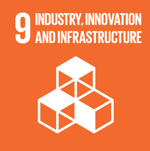Pesticide reduction in rice and beans
 Colombia
Colombia
 Ecuador
Ecuador
 Venezuela
Venezuela
Executive Summary
The indiscriminate use of insecticides and fungicides in rice and beans in the Andean zone has become a serious problem that affects the environment, the health of producers and consumers. Its excessive use has caused resistance to fungicides and insecticides to the main pathogens and insects that affect these crops. Most of the pesticides used are category I (extremely dangerous) and are applied without the minimum safety precautions.
This project proposed the quantification of the use of pesticides, the determination of current levels of resistance to the most important biotic factors that limit production, and the development of alternatives for the control of pests and diseases that could reduce the use of chemicals by at least 60%.
The IPDM (Integrated Pest and Disease Management) systems to be developed need to be acceptable to farmers so that the resulting strategy allows them to combine different means of fighting pests and diseases without sacrificing yields. Within this framework, the final objective of the project was to develop IPDM systems that reduce the burden of toxic elements in agroecosystems dedicated to the production of beans and rice in Colombia, Venezuela and Ecuador.
As a corollary, the project carried out a strong outreach and training component for producers and technical personnel.
The technological solution
The technological solution was a combination of elements, technologies and strategies leading to the IPDM with the purpose of reducing the toxic load normally applied to both crops. It specifically included the quantification and classification of the pesticides used in both crops, the genetic resistance of rice and bean varieties, the evolution of the main pathogens and their isolates to determine virulence and their resistance to the main groups of available agrochemicals, such as organophosphates and carbamates.
Results
In rice, methodologies were developed for the evaluation of the two most important pathogens of the crop: Pyricularia grisea and Rhizoctonia solani. Isolates were collected and characterized to determine virulence. In parallel, Integrated Management plans were developed based on resistant varieties and balanced nutrition. The training of producers, 120 of them in Huila, Colombia, considered the rational use of fungicides, it was shown that 1 or 2 applications of fungicides are sufficient instead of the normal 3 or 4.
In the case of beans, it was determined that Trialeurodes vaporariorum (Westwood), the B biotype of Bemisia tabaci (Gennadius), Thrips palmi Karny and Liriomyza huidobrensis (Blanchard), are the main bean pests in the Andean Zone. The levels of resistance to oganophosphates, carbamates, pyrethroids and neonicotinoids were evaluated in adults and immature insects in 28 locations in the two countries.
The management proposal was based on monitoring populations to determine the action threshold of the indicated pests, minimize the use of insecticides and create better environmental conditions to favor the development of natural enemies.
Beneficiaries
Although there was no systematic quantification of direct and indirect beneficiaries, the project, by demonstrating the socio-economic and environmental viability of reducing agrochemicals in a significant way, could have a very important future effect, obviously if these results are accompanied by adequate public policies. The direct beneficiaries were considerable, only one of the various training courses described indicated a total of 120 participants.
Sustainable Development Goals



Participating Organizations
Executor
- International Center for Tropical Agriculture (CIAT) - Colombia
Associated
- Instituto Nacional de Investigaciones Agropecuarias (INIAP) - Ecuador
- Instituto Nacional de Investigaciones Agrícolas (INIA) - Venezuela
Graphics and data
Financing by country (in USD)































